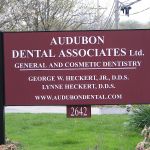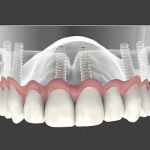Can Dentists Tell If You Smoke?
If you’ve ever wondered whether your dentist can tell if you smoke, you’re not alone. As a regular smoker, I used to worry about what my dentist could discover about my habits, especially when it came to my oral health. After all, smoking is well-known for its detrimental effects on teeth and gums. But just how obvious are the signs? Let me share what I’ve learned about how smoking affects your mouth and whether dentists can truly tell if you’ve been puffing away.
1. The Connection Between Smoking and Oral Health
It’s no secret that smoking can wreak havoc on your oral health. From yellowing teeth to bad breath, the signs are often visible to anyone, not just your dentist. Smoking introduces toxins into your mouth that can lead to a host of dental problems. These include stained teeth, gum disease, tooth decay, and even oral cancer. Knowing these risks, I was curious if my dentist could detect my smoking habits during routine checkups.
1.1 Teeth Staining
The first and most obvious sign that my dentist could tell I smoked was the staining on my teeth. Nicotine and tar from cigarettes can leave brownish-yellow stains that are difficult to remove with regular brushing. If you smoke regularly, chances are your teeth will start to show signs of discoloration. I remember my dentist pointing out these stains during a routine cleaning, and it was something I had never really noticed until she pointed it out.
1.2 Bad Breath
Another common sign of smoking is persistent bad breath. This can occur due to the chemicals in cigarettes that linger in your mouth and throat. Even if you try to mask it with gum or mouthwash, the odor often lingers. When I first began smoking, I didn’t realize how much it affected my breath. But after a while, I noticed my dentist was always commenting on my breath, which made me realize the effect smoking was having.
2. Can Dentists Detect Smoking Beyond Stained Teeth and Bad Breath?
While stained teeth and bad breath are the most obvious signs of smoking, dentists can also detect less visible signs of smoking that can affect your long-term oral health. These include gum disease, tooth decay, and even oral cancer. My dentist explained that smoking weakens your immune system, making it harder for your body to fight off infections, including those in your gums. This can lead to more severe gum disease and, in some cases, tooth loss.
2.1 Gum Disease
Gum disease, or periodontal disease, is a common condition among smokers. The chemicals in cigarettes can cause your gums to recede, making them more prone to infections. As a smoker, I found that my gums were more sensitive and prone to bleeding during cleanings. My dentist warned me that untreated gum disease could lead to tooth loss and other serious oral health issues. This was a wake-up call for me to pay more attention to my oral hygiene.
2.2 Increased Risk of Tooth Decay
Smoking can also increase your risk of tooth decay. The tar and nicotine in cigarettes can create a sticky film on your teeth, making it easier for plaque to build up. Plaque harbors bacteria that can lead to cavities and tooth decay. Despite brushing regularly, I found that I was still dealing with cavities more often than I should have, a direct result of my smoking habits. I realized that no amount of toothpaste could fully undo the damage smoking was causing.
3. The Impact of Smoking on Healing After Dental Procedures
One of the most eye-opening things I learned from my dentist was the impact smoking can have on healing after dental procedures. Whether it’s a simple cleaning, a filling, or something more complex like a tooth extraction, smoking can slow down the healing process. Smoking constricts blood vessels, reducing the flow of oxygen and nutrients to the affected area. This can lead to prolonged healing times and an increased risk of complications. After learning this, I made a conscious effort to quit smoking before undergoing any major dental procedures, realizing how much it could impact my recovery.
3.1 Dry Socket After Tooth Extraction
For example, after a tooth extraction, smokers are at a higher risk of developing dry socket, a painful condition that occurs when the blood clot at the extraction site is dislodged. My dentist explained that the suction from smoking can dislodge the clot, delaying healing and causing severe pain. This was a significant reason for me to reconsider my smoking habits, especially when I had dental work planned.
4. How Dentists Help Smokers Protect Their Oral Health
Knowing the serious impact smoking can have on my oral health, I asked my dentist for advice on how to protect my teeth and gums. She provided me with several useful tips for smokers to maintain their oral health. One of the first pieces of advice she gave me was to maintain excellent oral hygiene. This includes brushing at least twice a day, flossing regularly, and using a fluoride mouthwash. My dentist also recommended more frequent cleanings to help remove the buildup of plaque and tartar.
4.1 Quit Smoking or Cut Back
While dental care can help mitigate some of the effects of smoking, the best way to protect your oral health is to quit smoking altogether. I know it’s easier said than done, but my dentist stressed that even cutting back on smoking can significantly improve the health of my teeth and gums. There are numerous resources available to help smokers quit, including nicotine replacement therapies and support groups. After learning about the benefits of quitting, I decided to take the plunge and start working on quitting smoking for good.
5. Final Thoughts on Smoking and Your Oral Health
Overall, I’ve learned that dentists can absolutely tell if you smoke, even if you think you’re hiding it. The damage smoking causes to your teeth and gums is often visible during routine dental exams, and your dentist can detect signs of gum disease, tooth decay, and other oral health issues. However, by taking steps to improve your oral hygiene, cutting back or quitting smoking, and following your dentist’s advice, you can protect your smile and reduce the long-term impact of smoking on your oral health.







 Rollins & Petersen Orthodontics4.0 (348 review)
Rollins & Petersen Orthodontics4.0 (348 review) Audubon Dental Associates Ltd5.0 (6 review)
Audubon Dental Associates Ltd5.0 (6 review) Doc Bresler's Cavity Busters4.0 (363 review)
Doc Bresler's Cavity Busters4.0 (363 review) Smileawhile Dental4.0 (159 review)
Smileawhile Dental4.0 (159 review) Montclair Perio & Implant Specialists: Anne Hartnett, DDS0.0 (0 review)
Montclair Perio & Implant Specialists: Anne Hartnett, DDS0.0 (0 review) Dr. Shubha Soni-Gaur5.0 (1 review)
Dr. Shubha Soni-Gaur5.0 (1 review) The Importance of Oral Health Education During Pregnancy for a Healthy Pregnancy
The Importance of Oral Health Education During Pregnancy for a Healthy Pregnancy Best Tips for Brushing Your Teeth Properly for Healthy Gums: Essential Techniques for Oral Health
Best Tips for Brushing Your Teeth Properly for Healthy Gums: Essential Techniques for Oral Health Why Skipping Dental Checkups Can Lead to Bigger Oral Health Problems
Why Skipping Dental Checkups Can Lead to Bigger Oral Health Problems Advantages of Porcelain Dental Restorations
Advantages of Porcelain Dental Restorations How Can Diabetes Cause Tooth and Gum Problems? Preventing and Managing Oral Health Issues
How Can Diabetes Cause Tooth and Gum Problems? Preventing and Managing Oral Health Issues Healthy Habits for Promoting Good Oral Health and Hygiene: Tips for a Healthy Smile
Healthy Habits for Promoting Good Oral Health and Hygiene: Tips for a Healthy Smile